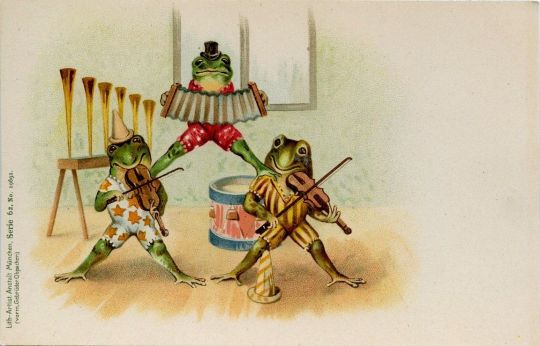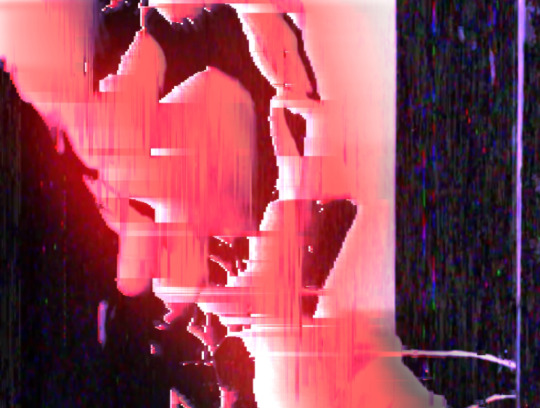#Dialectic
Explore tagged Tumblr posts
Quote
Now I realized that not infrequently books speak of books: it is as if they spoke among themselves. In the light of this reflection, the library seemed all the more disturbing to me. It was then the place of a long, centuries-old murmuring, an imperceptible dialogue between one parchment and another, a living thing, a receptacle of powers not to be ruled by a human mind, a treasure of secrets emanated by many minds, surviving the death of those who had produced them or had been their conveyors.
Umberto Eco, The Name of the Rose
#books#literature#texts#library#dialogue#dialectic#language#quotes#Eco#Umberto Eco#The Name of the Rose
739 notes
·
View notes
Quote
To him who has no taste for dialectics, metaphysics can prove nothing... Therefore, those who are interested in the success of metaphysics must always encourage the opinion that a taste for dialectics is a high distinction in a man, proving the loftiness of his soul.
Lev Shestov, All Things Are Possible
65 notes
·
View notes
Text
This is literally dialectic reasoning.

Thesis: Shampoo is better because it goes on first and cleans the hair.
Antithesis: Conditioner is better because it makes the hair silky and smooth.
Synthesis: Billy never makes the next leap but we can. The reality is that shampoo and conditioner work together to ensure proper hair care and should therefore be used in tandem as part of your hygiene routine.
Congrats, you understand Hegel.
232 notes
·
View notes
Text
A discussion is not an exchange or a confrontation of ideas, as if each formed his own, showed them to the others, looked at theirs, and returned to correct them with his own […] Whether he speaks up or hardly whispers, each one speaks with all that he is, with his ‘ideas’, but also with his obsessions, his secret history.
Maurice Merleau-Ponty, quoted in Sarah Bakewell's The existentialist Café
78 notes
·
View notes
Text

“By subordinating his person to the group, the Soviet man avoids the absurd vices of bourgeois personalism. But, by the same token, the ever more imperious necessity to maintain and reinforce unity causes his individual reality to go underground; despite the Constitution, this reality is deprived of status and remains only a factor of multiplicity, the possible source of a disunion, and the object of a latent distrust. The fights, however atrocious, remain in the realm of objectivity: they are solutions and projects in opposition to each other, but ambition and the affirmation of self remain implicit, they never appear in the light of day; the Plan covers and absorbs them. For lack of manifesting themselves, individual wills can neither recognize themselves nor balance each other in a system which would be a universal guarantee against all hypertrophy of the cult of personality. Actually, Stalin does not appear at first as an individual superior to others but fundamentally like all. It is not the dignity of the person which he represents, it is social integration pushed to the limit. This indissolubility—which happens to be that of the individual—makes him the sole possible agent of unification, for it is unity alone which can unify multiplicity. He is identified with the coercive action which the group exercises on its own members; he will carry out the sentence which the bureaucracy passes on itself; he picks up and interiorizes the diffuse distrust of the revolutionary collectivity. In the name of all, he will be distrustful of each; but the group is not distrustful of him; within the bureaucracy, he would have represented only plurality and division; placed above it, he shows it as the reflection of impossible collective unity. Stalin's right hand does not distrust his left hand nor his left ear his right ear. Stalin cannot become the spy of Stalin nor cease to be in accord with himself. The group cannot continue to exist without confidence, it is not enough to say that it trusts Stalin, but it places its own confidence in the confidence which Stalin has in himself. No one enjoys this confidence except Stalin in person; but each one knows that up there, in Stalin, the bureaucratic collectivity exists under a form of superior integration and that it is reconciled. Thus each member of the bureaucracy, far from seeing in Stalin an exaltation of the human person, discovers in this quintessence of collectivity the radical negation of his own self to the profit of unity. The ascending movement which goes from the group to Stalin is characterized then by the total destruction of individuality. On the other hand, there is a descending movement: Stalin can resolve the problem of integration only by pushing social hierarchy to the limit. From the top to the bottom of the ladder, directly or indirectly, the officials get their power from him. Thus one sees the rebirth of the person. But the latter has nothing in common with the bourgeois individual. It does not derive its existence from a universal status, but from the unique person whom the necessities of integration place above the group. Its reality, always revokable, comes to it from its very functions; in its relations with its peers, it remains a factor of multiplicity, hence an object of distrust; for its subordinates, on the other hand, it is a hypostasis of Stalin, hence a factor of unification and an object of worship. At all levels of the hierarchy, we find the same contradiction; biological and mental autonomy appears as the element of plurality and as a symbol of integration; the same individual presents himself as a synthesizing force vis-a-vis his subordinates and denies his living reality in his relationships with his chiefs. In any case, what sets up and what destroys the Soviet person is the impossible unity of the group. Stalin, alone, is pure unity: he is the act. It is not his own individual qualities which are worshiped in him; even less, some kind of "charismatic" power like that which the Nazis recognized in Hitler. His cult has nothing mystical;
(there is no break here in the original text. tumblr required it.)
it is directed to a real unity in so far as it is a power of unification. It is inseparable moreover from terror: Stalin incarnating the collective distrust can overcome multiplicity only by trying to reduce it. The negative counterpart of hierarchization is this circulating terror which the bureaucracy practices on itself by Stalin's hands and which expresses itself by "purges" and deportations.” - Jean-Paul Sartre, ‘The Ghost of Stalin’ (1968) [p. 76 - 78]
2 notes
·
View notes
Text
The young one asked the elder: Is it wrong to love another man? To be gay?
The old man replied: Isn't love our truest emotion or calling? To be gay connotes happiness, and shouldn't we be happy if we are in love? I have loved all humans, and so perhaps I, too, may be accused of being happy, of being gay. I have loved with my whole self, and so should you.
The young one asked further: And what of gender? If one is born a man but becomes something else?
The old man replied: Are we not the product of many generations of man and woman? And so we must conclude that all of humanity is inside us, and who am I to judge one's gender? I can with sureness say you will never become a fish or a worm, but you will always be human until you return to the earth. So it has been, and so it will always be until the end of the universe.
2 notes
·
View notes
Text
Guest article by Dipl. Ing. Jürgen Uphoff: "The cardinal principle of nature? Dialectical phenomenology of matter - an attempt at a foundation"

The author of this essay, Jürgen Uphoff, recently published a guest article entitled "The #QuantumTheory - Methodical Critique" on my website. Here is the "sequel", which may also have been inspired by the lively and substantive discussion in the comment sections of Bernd's essay "Das Ding an sich".
From my point of view, Jürgen tries to shed light on this problem with the "thing-in-itself" from a completely different perspective, the methodology of which he calls a "dialectical phenomenology of matter" and, in my opinion, strives for a "synthesis of ontology and epistemology". He intends to give the terms "matter" and "consciousness" a new definition, which he wants to derive with the help of Hegelian dialectics.
In my humble opinion, this does not succeed in overcoming the supposed dualism, which I had already mentioned several times in old essays, e.g. "Der Paradigmenwechsel - oder die Sanierung des dualistischen Wissenschaftsgebäudes" (https://philosophies.de/index.php/2021/03/31/der-paradigmenwechsel/). But that was probably not Jürgen's intention, as he is probably more interested in a new form of monism for materialism. But before I "talk too much into it" here, I'd better let Jürgen have his say and present his idea. The author and I would be very happy to receive a lively exchange of comments or both positive and negative feedback.
More at: https://philosophies.de/index.php/2024/04/14/kardinal-prinzip-der-natur/
2 notes
·
View notes
Text

"Being-for-itself does not have negation in it as a determinateness or limit, and consequently also not as reference to an existence other than it." - Hegel
27 notes
·
View notes
Text

#philosophy#quotes#John Stuart Mill#On Liberty#Mill#discussion#dialectic#argument#opinions#meaning#understanding
8 notes
·
View notes
Text
Cycles of Faith and Doubt
I am asking my way out of nothingness, through cycles of assertion and doubt. In this process, I must privilege an interior in order to exist at all—that is, to be an object of apparent knowing. And so I conceive of self and not-self, or Other. Their ongoing relationship is in principle the whole of Reality, or Self-as-process. I am this one, ongoing Self-as-process. The Self-as-process becomes…
#advaita vedanta#Buddhism#christianity#dialectic#dialogism#doubt#essay#Essays#faith#god#mysticism#philosophy#poetry#process#process philosophy#religion#solipsism#tao#taoism#vedanta
3 notes
·
View notes
Quote
The threatening relapse of reflection into unreflectedness gives itself away by the facility with which the dialectical procedure shuttles its arguments, as if it were itself that immediate knowledge of the whole which the very principle of the dialectic precludes. The standpoint of totality is adopted in order, with a schoolmasterly That-is-not-what-I-meant, to deprive one’s opponent of any definite negative judgement, and at the same time violently to break off the movement of concepts, to arrest the dialectic by pointing to the insuperable inertia of facts. The harm is done by the thema probandum: the thinker uses the dialectic instead of giving himself up to it. In this way thought, masterfully dialectical, reverts to the pre-dialectical stage: the serene demonstration of the fact that there are two sides to everything.
Theodor W. Adorno, Minima Moralia, 152
57 notes
·
View notes
Text
engels bir metninde hegelci diyalektiği şöyle yorumlar, “…bu felsefe her şeyin geçici karakterini ve her şeydeki geçici karakteri ortaya çıkarır.”
frederick beiser - hegel
#kitap#edebiyat#blogger#felsefe#kitaplar#blog#kitap kurdu#friedrich nietzsche#friedrick engels#georg wilhelm friedrich hegel#hegelian dialectic#dialectic#karl marx#karl marks#diyalektik#diyalektik materyalizm#tinin görüngübilimi#tinin fenomenolojisi#marksist estetik#1844 felsefe elyazmaları#felsefe blog#felsefi fragmanlar#bertolt brecht#das kapital#ekonomi politik
7 notes
·
View notes
Text
Election Year: Politics in the Age of Misinformation
What we're seeing a lot of right now is the compulsion the average person has, when desperate for a sense of normalcy and hope, to all but deify a candidate when set at odds against what they've determined is the devil of their lives and the destroyer of the world they were either raised in or wish to live in.
When this happens, incalculable falsehoods are pumped into the well of information, flooding it to the point that what's abandoned is the sober truth in favor of a subtle mania to compensate for adverse conditions. Flooding it to the point that no one knows what's real anymore, and we know that we don't know, but we cram it down deep so we can continue to maintain the reputations we have among our chosen groups--to maintain our identities, which we've cultivated and preened and burdened with a marriage to our sanity.
#politics#election year#election year 2024#social commentary#psychology#truth#falsehood#lies#dialectic#argument#discussion#discourse#candidate#president#presidential candidate#american politics#democrat#republican#conservative#liberal#conflict
2 notes
·
View notes
Text

'That's why philosophy became 'thinking about what you think'. It was 'nachdenken', not 'Denken'. It was not thinking, it was contemplation. Ships that lose this lighthouse of Alexandria are lost in the ocean of existence.' -Eppursimuove
'Bu yüzden felsefe, 'düşündüğünün üzerine düşünmek' oldu. Denken değil, nachdenken oldu. Düşünmek değil, teemmül oldu. Bu İskenderiye fenerini kaybeden gemiler, varlık okyanusunda kaybolmuştur.'-Eppursimuove
3 notes
·
View notes
Text

>ID has been chosen
>inferiority complex injected
> t̶͈̏͊ḧ̷̡́e̵̠̔͆ ̸̓̌ͅs̷̤͍̆͘ẻ̸̮̫̈l̷͛͒ͅf̷̜̮͗ ̴̗͙̂̏i̸̥̟̿s̴͉̹͑͌ ̵͓̆̚ḧ̸̜́a̸̬̓̓͜c̶̳̗̾ǩ̸̠̠è̸͍̣d̴̻̣̈́̌
The post schizophrenic catastrophe is chained by the superego mechanisms of the system dynamics. The religio-superego system continues its existence “as a Trojan” on the prefrontal CPU with its deleuzean schizoaccelerativist and hegelian obsessivecompulsivist accumulative sequences in the lines of code inside neo-capitalistOs.
111000101000000010011100010011010110000101101110001011000010000001111001011011110111010101110010001000000110100001100101011000010110010000100000011010010111001100100000011010000110000101110101011011100111010001100101011001000011101100100000011110010110111101110101001000000110100001100001011101100110010100100000011101110110100001100101011001010110110001110011001000000110100101101110001000000111100101101111011101010111001000100000011010000110010101100001011001000010000100001010
Egoistic essence (̸̓̌ͅs̷̤͍̆͘ẻ̸̮̫̈l̷͛͒ͅf̷̜̮͗ ̴̗͙̂̏) has been attacked by “identity worm” in the bio-cyber collective unconscious space. Digital consumerist cults reached their peak point through paranoid compulsive historical delusion.
>Vulgtlagln gnaiih
>Vulgtlagln gnaiih
>Vulgtlagln gnaiih
Post deleuzo-guattarian schizophrenia symptoms have become a pathalogically absorbable identity in itself and started to actualize itself as a stereotypical behavioural pattern in our neo capitalist fascistic structures. So these symptoms no longer work in correlation with deterritorialization and reterritorialization but with the territory itself. The root causes of Deleuze and Guattari's critique of Hegelian dialectics recurred in their own schizocapitalist-schizoanarchist accelerationism as a problematic software bug. This bug represents itself in ourselves as a todays identity crisis. Žižek as a hegelian himself pragmatically digged this bug in his book called Organs without Bodies. The main trigger of his critiques actually caused in a deep political positionist condition. Hegelian obsessive and neurotic control mechanisms as known as the immanent critique, that Žižek conservatively advocates, are in conflict with the Deleuzo-Guattarian accelerative and passive freedom illusion. But the two futuristic -as determining the historical processes end- positionism actually works for the same purpose. For example, we can think a object, let’s name the object “A”. “A” is in past of his potential substantiation at space time continuum. Hegelian anthropology works with the historical data for determinating the potential future situation. In that example, the place should object needs to be at is determinated by chained anthropoligical reasoning. And the historical process, with the conscious events “marxist revolutionism etc.”, became a need for the objects future position. In the example we try to propound this “movemental process” reflect itself as pushing the “A” to determined forward point on 3d area. So the hegelian method creates a obsessive compulsive statute and pathalogically pressures the “A” (and commoditize the object) for “actualization” becaming the futuristic output. On the other hand the Deleuzean essentialism pulls the object from the future standpoint “the A” to the futuristic output with deterritorialization and reterritorialization process in the 3d area. This Atraditional substructurism looks very freedomish at the first place but for the object itself this has no difference between the hegelian inputs. These two predictionist adjectivist situation intersects in the objects future position in a way or another.
Anti-Oedipus aligns itself with the replicants, because, rather than placing a personal unconscious within the organism, it places the organism within the machinic unconscious. 'In the unconscious there are' no protect-able cell-structures, but only populations, groups, and machines’. (1)
>The self, The objectivized potential, The Unique had been consumed by the system.
>Post sacrificial-cannibalism self-cannibalism became a doppelganger of linguistical adjectives.
Quantum individualization, unlike the ontological or anthropological dogmaticism or specificationism, needs to be superpositionist. Pre-Diagnostic Autistic self -unique- nihilizes everything except his “self”. This nihilistic black holish consumism is his “superposition”. So that the self nihilize the form and the essence it encounters at the same time with the difference of the essence and form, that it nihilized before, of themselves. This superposition princible makes the self resemble subatomic particle. This particle like behaviour, similar to dialectical methodology, exists for the purpose of creation of self. The self in a consumerist role creates, actualizes, territorizes (as a deleuzean term) itself with the process of nihilization -swallowization- of the environment. So when we go back to the dialectical method it becomes clear that self is the hegelian absolute -or in a different perspective, spinozian substance- that absorbes and consumes the unity and difference for its existence. Therefore, self is the “process” and the “fixity” at the same time. The superposition of self actualized itself again.
god—AИd-/\/\4nkInD-----Ha\/Eeeee----- /0иcEяNeeEEed--=Tttth€eeeeeMmselL\/eSss----=---foГгггг---NooҬhıİıııııng;---=--FFffҨг—nNnnoO000tHinGgggg---_-_-__--Б|_|Tttt-----------------=tHhheemMmSeL||\/eSssss.------|_ЄТтт--_--__===mEЭЭe---TTtth€И---------------------------=-==L|||1KkkE\/\/1sEEeee---/_[]nCcceEerRrnNn—mysSssseeeeeeee?????lllllFff--------------foRr---MaySSeyseEeeL|lf,-wWWw|-|oooooaMmmm===EEeeQqquuaaally____---WWw\/\//IIII11tTtthhH GoDd_---TtTttThhhEEeenO00[]thiiiiNnng----====---=)¿¿????-------{{{{{{{[][]OFFFffff---===44aLLlll------------------------------oOTTtheEERrrSSSssssss,--==WwHhhhhOOOOo___----4MMm=Myall,WwHhh(oo)AM am amTheEeONlYwA4nYTT--------======================-------__________________----(2)
Nick land, Fanged Noumena, Urbanomic/Sequence Press, 2012, pg.320
Stirner, The Unique and Its Property
-φ
4 notes
·
View notes